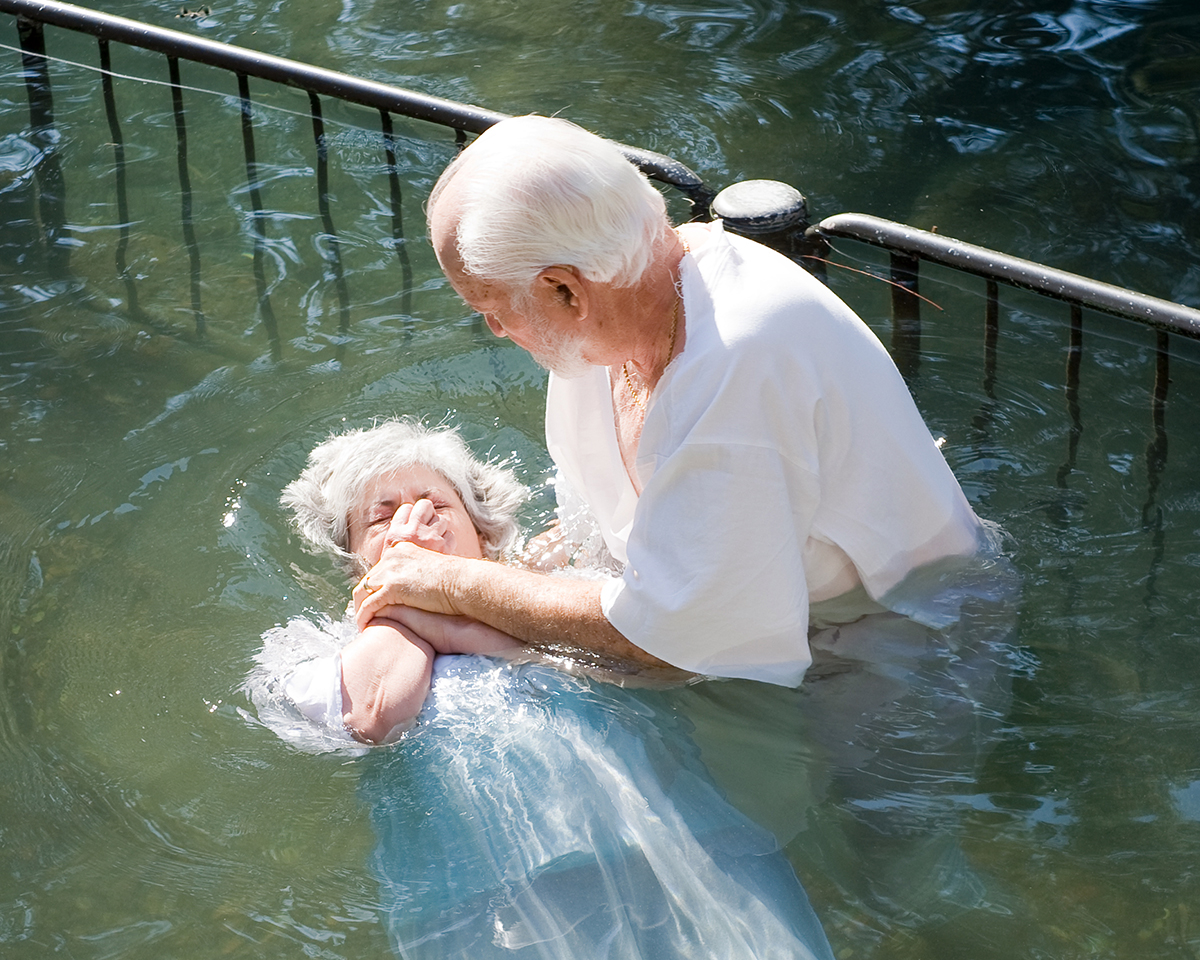
by Bobby L. Graham
A reader from Chile asks, "Can an unbeliever baptize someone who wishes to become a Christian?"
As important as baptism is in God's plan of salvation, it does seem to have little emphasis placed upon the person doing the baptizing. One can search the New Testament through and through without ever reading any particular stress being placed on the individual baptizing another person. There are requirements/prerequisites applicable to the one being baptized in almost every passage relating to baptism, but there are no requirements/prerequisites clearly stated concerning the baptizer. How does one explain this absence of teaching in the New Testament?
When the Lord gave the Great Commission to His apostles near the end of His earthly work, He naturally included baptism in the work that they were to do when people were ready for baptism (Matt. 28:19-20; Mark 16:15-16). They were the ones directly involved in carrying out the Lord's orders and were thereby qualified to baptize others. Did He caution them about the kind of people who could do future baptizing? No!
On the day of Pentecost, when the church began in Acts 2, who did the baptizing of the 3000? Someone suggests that apostles did, but how do you know? The truth is that Luke does not tell us who baptized the 3000 who obeyed the gospel. On successive occasions, when people were baptized in the book of Acts, who did the baptizing? How do you know? The truth is that no one knows who baptized the thousands who became Christians in the early chapters of Acts, the Samaritans in chapter 8, Cornelius and his household in chapter 10, or even Saul of Tarsus in chapter 9. If it makes a difference who does the baptizing, why did the Lord not inform us of those baptizing the named individuals?
Someone suddenly exclaims, "Philip baptized the Ethiopian in chapter 8." Yes, he was the only other person who was present. Would this one instance of knowing the baptizer require a Christian to baptize a person? If it would, would it not also require that the one doing the teaching also do the baptizing? In other words, after one teaches another about Christ (to the extent that the taught individual desires to be baptized), based upon this reasoning, it would be wrong to allow another person (who did not participate in the teaching but was influential earlier in that person's life) to step in and baptize the person. If this is not so, would someone please point out why it is incorrect reasoning. One cannot avoid the conclusion that the Bible does not emphasize who has the right to baptize another person.
Another problem arises when one insists that the baptizer be a Christian. This human requirement demands that the validity of one's baptism depends both upon the person baptizing him, as well as all of the persons who earlier baptized people in the chain of baptizers. This chain of baptizers must consist of Christians, faithful Christians, all the way back to the apostles of Jesus Christ. In other words, an individual could not know that his baptism was valid unless he also could vouch for the validity of the baptisms performed all the way back from him to the apostles. Since this is an impossibility, such insistence as we are examining places a cloud of suspicion or doubt over many baptisms, about which one has no information. Do you know for certain that the person who baptized you was faithful to the Lord? What about the person who baptized that one? Take it all the way back as many times as baptisms took place. Were all these baptizers faithful servants of the Lord? If even one was not faithful as judged by the Lord, then all subsequent baptisms in that line of conversions were invalid or unscriptural, at least according to this line of reasoning.
I challenge all who insist upon the baptizer being a Christian (Remember he must be a faithful Christian.) to admit that they simply do not know about all who baptized someone in the line of baptisms culminating with theirs. In other words, when judged by your own standard, your baptism is not valid or scriptural. Why? You do not know about the person who baptized someone in that line of baptisms 100 years ago or 1000 years ago, do you? With your lack of qualification to baptize another, are not all of the baptisms performed by you called into question?
When the Bible sets forth a command, like the necessity of baptism, there are specific requirements surrounding the command, as well as expediencies, to be used in implementing the command. The specifics must be obeyed as they are stated (like who can be baptized, why the person should be baptized, and how the baptism is to be done). However, the expediencies available in carrying out the command are optional (like the place for the baptism, the person doing the baptizing, and what other activities might accompany the baptism). Two problems can arise relative to baptizing a person: 1) loosing the specifics/mandates and 2) binding the expediencies available for baptism. If a person chooses either the loosing or the binding, he is wrong in doing so. When one requires the baptizer to be a Christian, he errs by elevating a human tradition to the level of divine law (Mark 7:8-9).
There is no problem that this writer knows about in using a Christian to baptize another. In most instances, I would even recommend that such be done. On the other hand, there are rare situations in which no Christian is available. Would you require that the person postpone his baptism until one is available? I would not make such a recommendation, but instead, suggest that the candidate for baptism find someone willing to do the baptizing so that all might be right then with God. I know of some Christians in Alabama church history who were baptized by individuals who did not believe baptism is necessary for the remission of sins. The one being baptized knew biblical teaching along this line and believed it. He wanted to be baptized so fervently he sought out a Baptist preacher, who already believed in immersion, and asked him to baptize him that his sins might be forgiven. Should John Taylor have waited to be baptized until he met some Christians who were able to baptize him? I would not want to make such a faulty recommendation and risk the loss of souls because of it.


